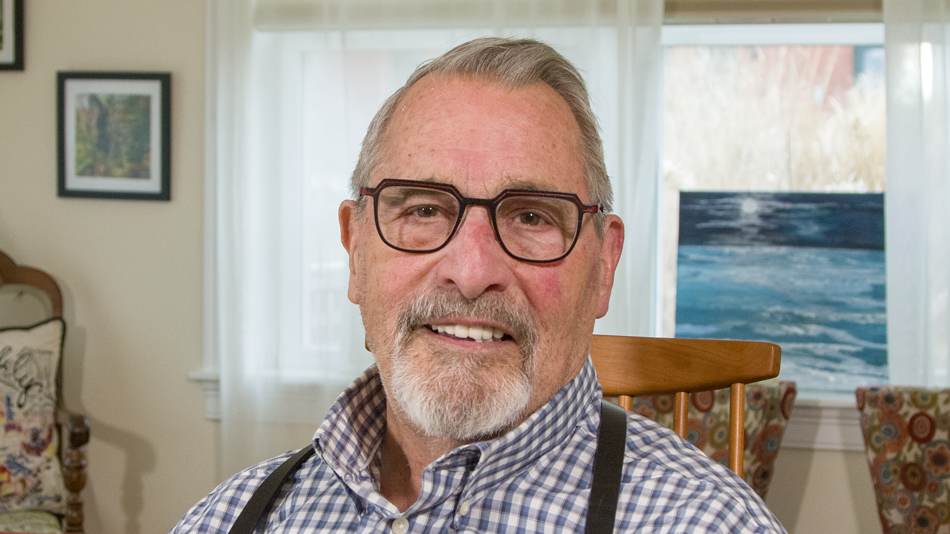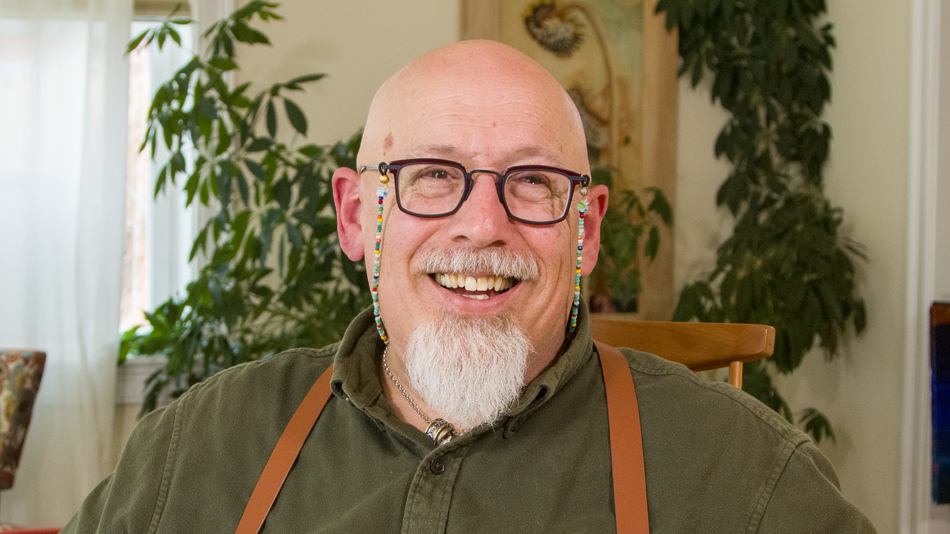I’m Noah Michelson and I’m from Racine, Wisconsin, which is a good place to go home to now but not a great place to grow up if you’re queer and especially in the 80s. And I was the queerest kid that I’ve ever met that I think anyone has ever met. I came out of the womb, ready to go. And not just queer but also super sexual and I don’t really know where that came from. And I don’t think anyone really does. And when I say that, my first memories and my first urges and desires were wanting to have sex with men. I had crushes on Mr. Rogers, I had a crush on Jesus, any kind of masculine figure in my life, I wanted to have sex with them.
One of my earliest memories though was of me being in love with our garbage man. And I just remember him, he had kind of a mustache but a very fine mustache and he didn’t wear sleeves in the summer so you could see his biceps, I think he had a really bad tattoo somewhere and I thought he was just so hot. And I remember one day I snuck outside and I was just in my underwear and I did a dance for the garbage man. I don’t know what that dance was like, I just picture in my head some kind of really horrible seductive dance that I had seen somewhere, I was probably 4 or 5 at the time. And he looked at me with a look of total puzzlement but also disgust. And he said to me, “What are you? Are you some kind of little queer?” And I remember turning around and going back in the house and finding my dad and saying, “Dad, guess what? The garbage man just called me a queer.” And I remember the look on my dad’s face, which was total horror, and he went to go and confront the garbage man, he walked towards the door and I said, “No, no, Dad wait, I like being queer.” And I didn’t really know what that meant then obviously, so I didn’t know what queer meant, I thought it just meant magnificent and unusual and not like everybody else and I thought that was something that I wanted to be.
So it was a very different experience than I think most kids had and I think I was super lucky to have a family who didn’t freak out about it, didn’t disown me, didn’t try to convert me, and I think that really sort of made me who I am today.
I think everyone’s story is important to share, I think the more that we tell our story, especially stories that are maybe strange or not the status quo or maybe even a little bit scary, for someone to say that I was a sexual child, I think a lot of people think like 1, that is a lie, kids can’t be sexual, or 2, there’s something wrong with you, or 3, you were abused. So I think that for me telling my story, I’ve talked about this before, I’ve written about this, and I can’t tell you how many people have found me and said, “I had the exact same experience, no one’s ever said that before.” So I think the more we start telling our stories, the less scary it is for people, and the more we can accept each other for who we are, and sort of all come to the table and say, “This is me, maybe it’s not who you were, maybe it’s not who you are” but it humanizes it I think which is really important and we’re seeing that’s how people change their minds.








Share